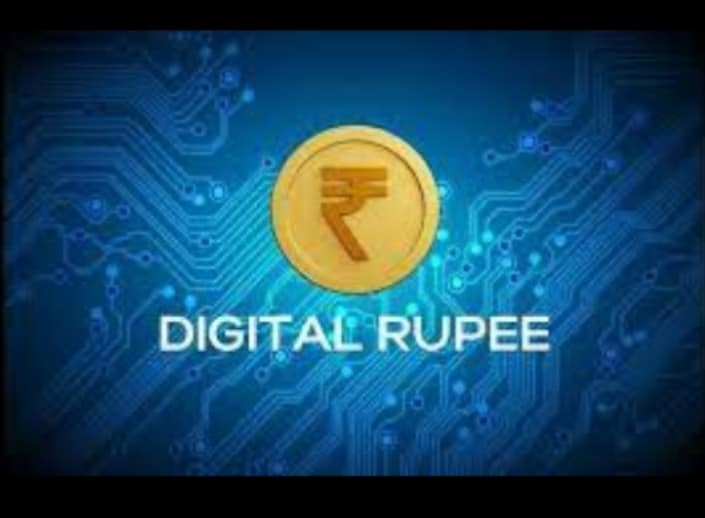The digital rupee pilot project has been started in the Wholesale segment from November according to the statement of RBI on ‘Operationalization of Central bank digital currency – Wholesale pilot project. According to the RBI it is a step to make the inter-bank market more efficient. Th settlement in central bank money would reduce transaction cost. Based on the learning from the first phase of the pilot project , the future ones will focus on other wholesale transactions and cross-border payments.
Nine banks have participated in this wholesale digital rupee pilot project which are
State Bank of India, Bank of Baroda, Union Bank of India, ICICI Bank, HDFC Bank,Yes Bank, IDFC First Bank, Kotak Mahindra Bank and HSBC.
Digital Currency- All we need to know
Digital rupee or Central Bank Digital Currency (CBDC) is the digital form of currency notes issued by a central bank. Digital rupee is an electronic form of money that can be used in contactless transactions. Finance Minister Nirmala Sitharaman had already announced while presenting the union budget that RBI will be rolling out its digital currency this year.

This digital currency will be of 2 types
First, the retail (CBDC-R) which would be potentially available for use by all.
Secondly, The wholesale (CBDC-W) which will be available for restricted access to select finance institutes.
RBI had earlier released a concept note to create more awareness about digital rupee. In the note the RBI has said that RBI-backed currency will provide the public with benefits of virtual currencies while ensuring consumer protection by avoiding the damaging economic and social consequences of private virtual currencies. This wholesale e-rupee will work on an account based model, which will require keeping record of balances and transactions of all holders of digital currencies and indicate the ownership of monetary balances .

While the RBI has been wary and skeptical of the cryptocurrencies, we must understand the difference between the digital rupee and the cryptocurrency. Cryptocurrency is a decentralized digital asset whose exchange is based on blockchain technology.
Although it has been controversial due to its decentralized nature, which means it operates without any intermediary like banks, or any central authorities. On The contrary, the Central Bank Digital currency is issued by RBI which will be a legal tender in digital form. Hence, the digital currency will have an intrinsic value due to government backing, it will be equivalent to a physical rupee.
Benefits of Digital rupee
It will reduce the cost of transaction and even the digitised currency will make it easier for the government to access all transactions happening within the authorised networks. Hence, the government will have better control of how money enters and leaves the country, which will allow creation of better budgeting and economic plans for the future. Moreover, the digital currency will be immune to any physical damage.












